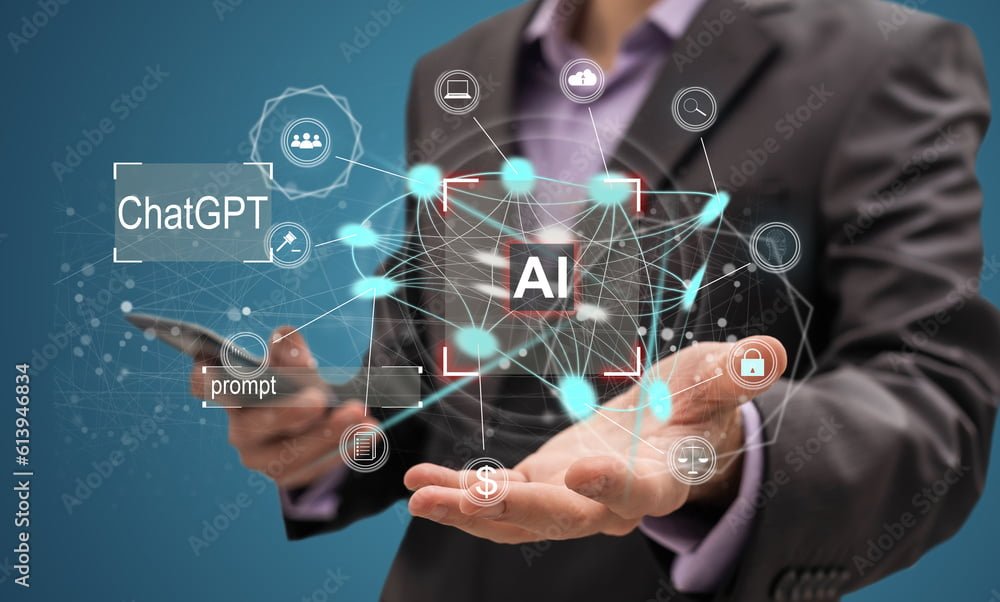Artificial intelligence (AI) is rapidly transforming many industries, and the legal system is no exception. AI has the potential to streamline legal processes, improve access to justice, and make the legal system more efficient and equitable. In a nation grappling with an overwhelming backlog of legal cases, the integration of artificial intelligence (AI) into the legal system is poised to be a game-changer. India, with its countless pending cases burdening the courts, stands to benefit tremendously from the transformative power of AI. This article delves into how AI can be a blessing for countries like India, breathing new life into the judicial process and paving the way for efficient and fair resolution of cases.

Unlocking Efficiency with AI:
Imagine a legal system where vast amounts of case-related data are processed, analyzed, and categorized in the blink of an eye. AI’s ability to swiftly sift through mountains of documents, statutes, and precedents ensures that relevant information is readily available to legal professionals. This boosts their productivity, enabling them to focus on critical tasks that demand human judgment and creativity, ultimately expediting the pace of case resolution.
Enhancing Legal Research:
AI-powered tools, armed with natural language processing and machine learning capabilities, can be harnessed to revolutionize legal research. These tools empower lawyers to uncover obscure legal precedents and relevant cases quickly, providing them with a comprehensive understanding of complex legal matters. In a nation like India, where the sheer volume of cases can be overwhelming, AI-driven research tools can significantly streamline the process, saving both time and resources.
Predictive Analysis for Smarter Decisions:
The predictive prowess of AI can prove invaluable in aiding judges and legal professionals to anticipate case outcomes. By analyzing historical data and identifying patterns, AI algorithms can offer insights into possible verdicts, helping attorneys craft more effective strategies. This predictive analysis not only enhances decision-making but also contributes to reducing the ambiguity that often surrounds legal proceedings.
Eradicating Biases:
One of the most noteworthy advantages of AI is its potential to eliminate inherent biases that can seep into legal proceedings. By relying on objective algorithms, AI systems can ensure that judgments are made based on facts rather than preconceived notions. This shift towards fairness and impartiality can significantly bolster the credibility of the legal system, instilling public trust.
Streamlined Case Management:
Managing an extensive backlog of cases is a monumental challenge faced by many judicial systems, especially in countries like India. AI-driven case management systems can assist in prioritizing cases, scheduling hearings, and managing documentation. Such automation not only reduces administrative burdens but also ensures that no case gets lost in the labyrinth of paperwork.
Specific Use Cases and Future Scenario
Here Are few specific examples of how AI is being used in the legal system today:
- Legal research: AI can be used to automate legal research, which can save lawyers a significant amount of time. This can free up lawyers to focus on more complex tasks, such as strategizing and providing legal advice.
- Document review: AI can be used to review large amounts of documents quickly and efficiently. This can help lawyers to identify relevant documents and to avoid missing important information.
- Case management: AI can be used to manage cases more efficiently. This can help to reduce the backlog of cases and to ensure that cases are processed more fairly and consistently.
- Predictive analytics: AI can be used to develop predictive models that can help lawyers predict the outcome of cases. This can help lawyers make better decisions about how to proceed with their cases.
- Chatbots: AI-powered chatbots can provide legal advice to people who cannot afford a lawyer. This can help to make justice more accessible to everyone.
- Translation: AI can be used to translate legal documents into multiple languages. This can help to make the legal system more accessible to people who speak different languages.

here are some data that show how AI is helping the legal system across the globe:
- A study by the Legal Technology Association found that 72% of law firms are using AI in some way. The most common uses of AI are for legal research, document review, and case management.
- A study by McKinsey & Company found that AI could save the legal industry $1 trillion by 2030. This savings would come from increased efficiency, reduced costs, and improved decision-making.
- The United Nations has called for the use of AI to improve access to justice. AI can be used to provide legal advice to people who cannot afford a lawyer, and to help people navigate the legal system.
- In China, AI is being used to automate many aspects of the legal system, including case filing, document review, and sentencing. This has helped to reduce the backlog of cases and improve the efficiency of the legal system.
- In the United States, AI is being used to develop predictive models that can help lawyers predict the outcome of cases. This can help lawyers make better decisions about how to proceed with their cases.
Conclusion:
The integration of AI into the legal system marks a revolutionary step towards addressing the daunting backlog of cases in countries like India. By harnessing AI’s capabilities for efficient data analysis, predictive insights, and unbiased decision-making, the legal system can transcend its limitations and deliver justice more swiftly and fairly. As technology continues to evolve, the synergy between AI and the legal sector holds the promise of transforming not just the way cases are resolved, but also the very essence of justice itself.
- The Power of Deep Research - February 5, 2025
- Replicate Deepsake on your Laptop - February 2, 2025
- The Future of Work: AI Agents - January 31, 2025


